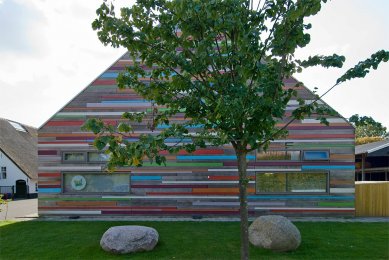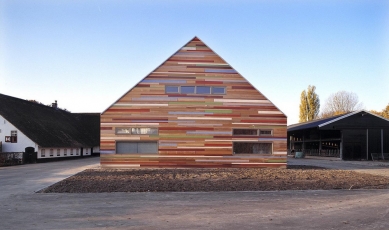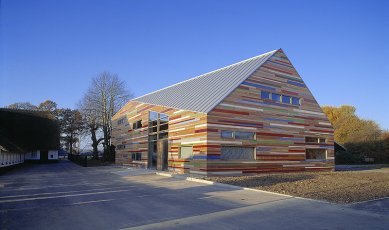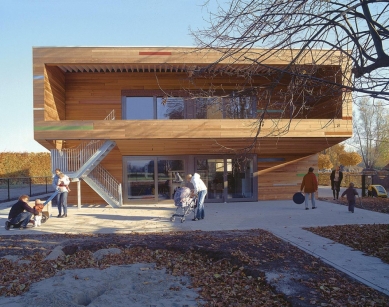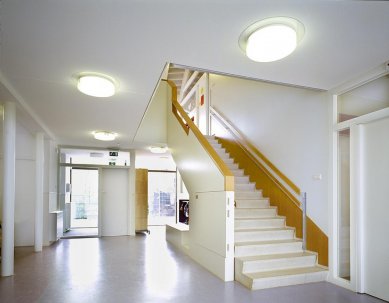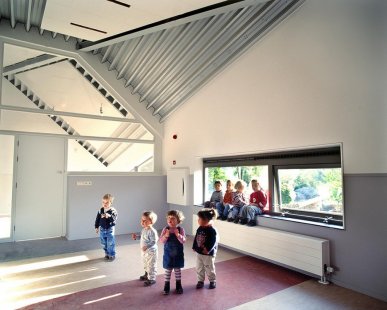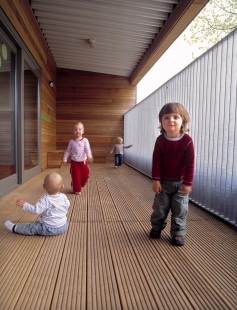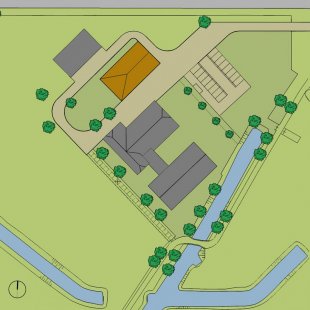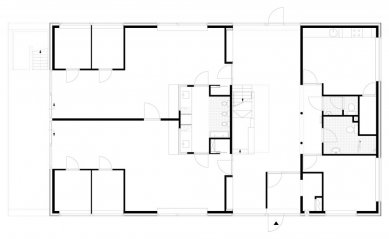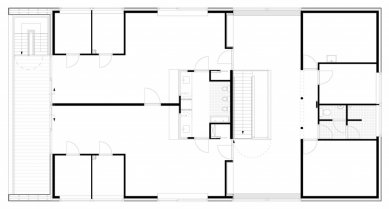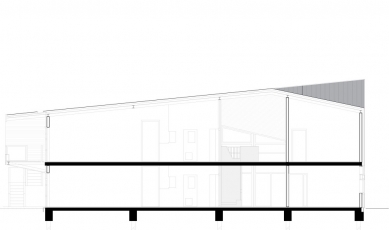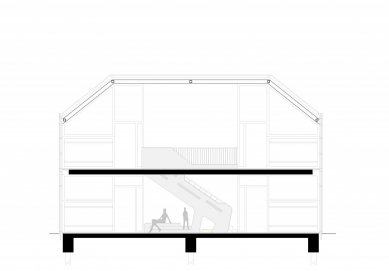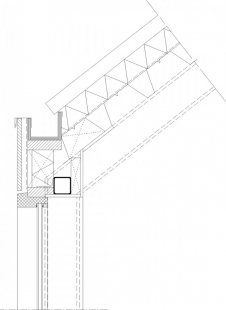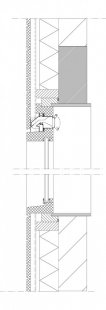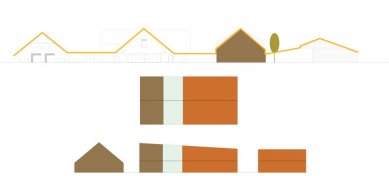
Day care centre de kleine Kikker

The new building is a playful design, joyful and with a lot of colour. It overlooks the grazing sheep in the meadow. Next to the building, to the left, there is a characteristic old farm, a monument, with a thatch roof, on the right, a wooden cowshed.
The new building is conceived as a contemporary type of farm, in form, material and construction (steel structure). The coloured facade and the aluminium roof contrast the rustic environment. The silhouette of the pointed roof refers to the existing farm building. Towards the back of the building, it transforms into a modernistic, functional building, with a flat roof, instead of a farm.
The new extension contains four children’s groups, age 0-4. The organization of the spaces is simple and logical, yet provide many surprising views from one room to the next that makes it a perfect environment for children and their mentors.
The building is symmetrical and is two stories high. The organization of the day-care is mirrored across the building’s central axis. There is a clear division in three zones. The front is reserved for the employees, the middle zone is used as playground and entrance, while the zone at the back contains the children’s groups. The big balcony at the back of this zone creates the outdoor space for the children on the first floor and also functions as a sun canopy against direct sunlight for the ground floor.
De kleine Kikker’s recognizable shape refers to that of its surrounding buildings, while it surprises through its distinguishing shape and its use of material and colour.
The new building is conceived as a contemporary type of farm, in form, material and construction (steel structure). The coloured facade and the aluminium roof contrast the rustic environment. The silhouette of the pointed roof refers to the existing farm building. Towards the back of the building, it transforms into a modernistic, functional building, with a flat roof, instead of a farm.
The new extension contains four children’s groups, age 0-4. The organization of the spaces is simple and logical, yet provide many surprising views from one room to the next that makes it a perfect environment for children and their mentors.
The building is symmetrical and is two stories high. The organization of the day-care is mirrored across the building’s central axis. There is a clear division in three zones. The front is reserved for the employees, the middle zone is used as playground and entrance, while the zone at the back contains the children’s groups. The big balcony at the back of this zone creates the outdoor space for the children on the first floor and also functions as a sun canopy against direct sunlight for the ground floor.
De kleine Kikker’s recognizable shape refers to that of its surrounding buildings, while it surprises through its distinguishing shape and its use of material and colour.
Drost + van Veen architecten
4 comments
add comment
Subject
Author
Date
deti musi byt stestim bez sebe ---
A.J.K.
22.11.09 12:04
skutečnost?
klecka
26.11.09 06:39
rebus
temily
30.11.09 09:57
k rebusu
klecka
30.11.09 12:06
show all comments




